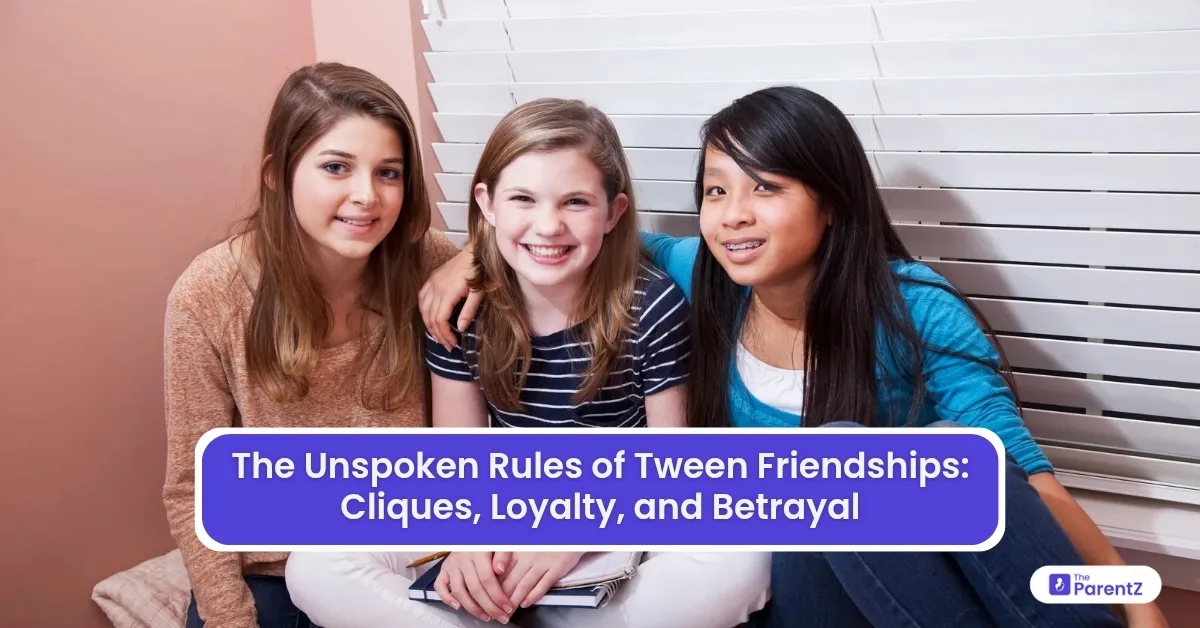Let's get real about what's actually happening in tween friendships right now. Not the stuff from parenting books written in 2010 — the actual social dynamics your kids are navigating in 2025. Consider this your cheat sheet to understand what's really going on with your tween when they come home looking like their world just ended because "Olivia didn't save them a seat at lunch."
The Vibe Check: Friendship in the Digital-First Era
Friendships today exist in two realms simultaneously — IRL (in real life) and online — and tweens are expected to maintain both with equal skill. A single awkward comment can live forever in a group chat screenshot, and social currency is measured in likes, views, and who gets invited to whose BeReal moments.
Here's what parents need to understand: your tween isn't just managing friendships at school; they're expected to maintain a whole digital persona that needs to be "authentic" yet carefully curated. Exhausting? Absolutely.
Today's Clique Culture: It's Giving Complicated
Forget the simple "popular kids" versus "everyone else" dynamic you remember. Today's social hierarchies are way more fluid but somehow even more intense:
- The "Core" Friend Group: Every tween has their "main people" — typically 3-6 kids they consider their closest allies. Getting demoted from this inner circle is the stuff of nightmares.
- The Situationship Friends: These are friends for specific contexts (sports team, coding club, theater). In 2025, having different friend groups isn't seen as disloyal — it's expected.
- The Online-Only Friends: Parents, please understand that these are REAL friendships. That kid your tween has never met in person but plays Fortnite with every Tuesday? That's a genuine friendship with genuine drama.
What's totally outdated: The idea that your kid needs to have ONE best friend. Most tweens now have a "bestie rotation," depending on who's available and what vibe they're seeking.
Loyalty Rules That Still Apply (But Look Different)
Some friendship codes are eternal, just with Gen Z twists:
- The "No Snitching" Code: This still exists but has evolved. Today, it's less about telling on someone for breaking rules and more about keeping personal information private. Sharing someone's personal struggles in the group chat without permission? Ultimate betrayal.
- Ride or Die Energy: Tweens expect their core friends to have their backs publicly, especially online. If someone posts a selfie with the caption "feeling meh today," their real friends better comment something supportive ASAP.
- The Birthday Rule: Missing a friend's birthday post is SERIOUS. The expectation: you post a dedicated Instagram story with a collage of your favorite pics together within 24 hours of their birthday. Late? You better have a good excuse.
The New Betrayals (Parents Need to Know These)
The things that constitute "betrayal" have evolved dramatically:
- The Screenshot Violation: Taking screenshots of private conversations and sharing them with others. This is the modern-day equivalent of sharing secrets.
- The Social Media Hierarchy Betrayal: Posting content with some friends but not others, especially when everyone was together that day.
- The Algorithm Offense: Supporting a friend's rivals on social media (liking/commenting on their content) can be seen as a betrayal. Yes, seriously.
- The "Left on Read" Sin: Deliberately not responding to messages for hours while visibly active online elsewhere.
How Parents Can Actually Help (Without Making It Worse)
First, please stop saying things like "just ignore it" or "find new friends." In their interconnected world, there's no such thing as simply walking away from social dynamics.
Instead:
- Validate without catastrophizing: "That sounds really frustrating" works better than "This is the worst thing ever!" or "This doesn't matter."
- Ask questions about the group dynamic: "How do your other friends feel about this situation?" helps them see the bigger picture.
- Recognize that digital friendship maintenance is real work: Your tween is juggling complex social obligations across multiple platforms. This takes genuine emotional labor.
- Be their safe space, not their fixer: They need somewhere to process these complex emotions without judgment, not someone swooping in to solve everything.
Conclusion
Here's the thing about tween friendships in 2025: beneath all the new digital complexities, kids are still figuring out who they are through their relationships with others. They're learning boundaries, communication, and the difference between healthy and unhealthy connections.
The platforms and slang may have changed dramatically, but the emotional journey remains remarkably similar to what you went through. The difference? They're navigating it all under the constant pressure of documentation and social performance.
So next time your tween is devastated because someone "gatekept the hangout details" or "totally curved their DM," remember: the feeling behind that experience is something you can understand, even if the vocabulary feels foreign. Meet them where they are, learn their language, and be the steady support they need while they figure out these wildly complex social waters.





Be the first one to comment on this story.